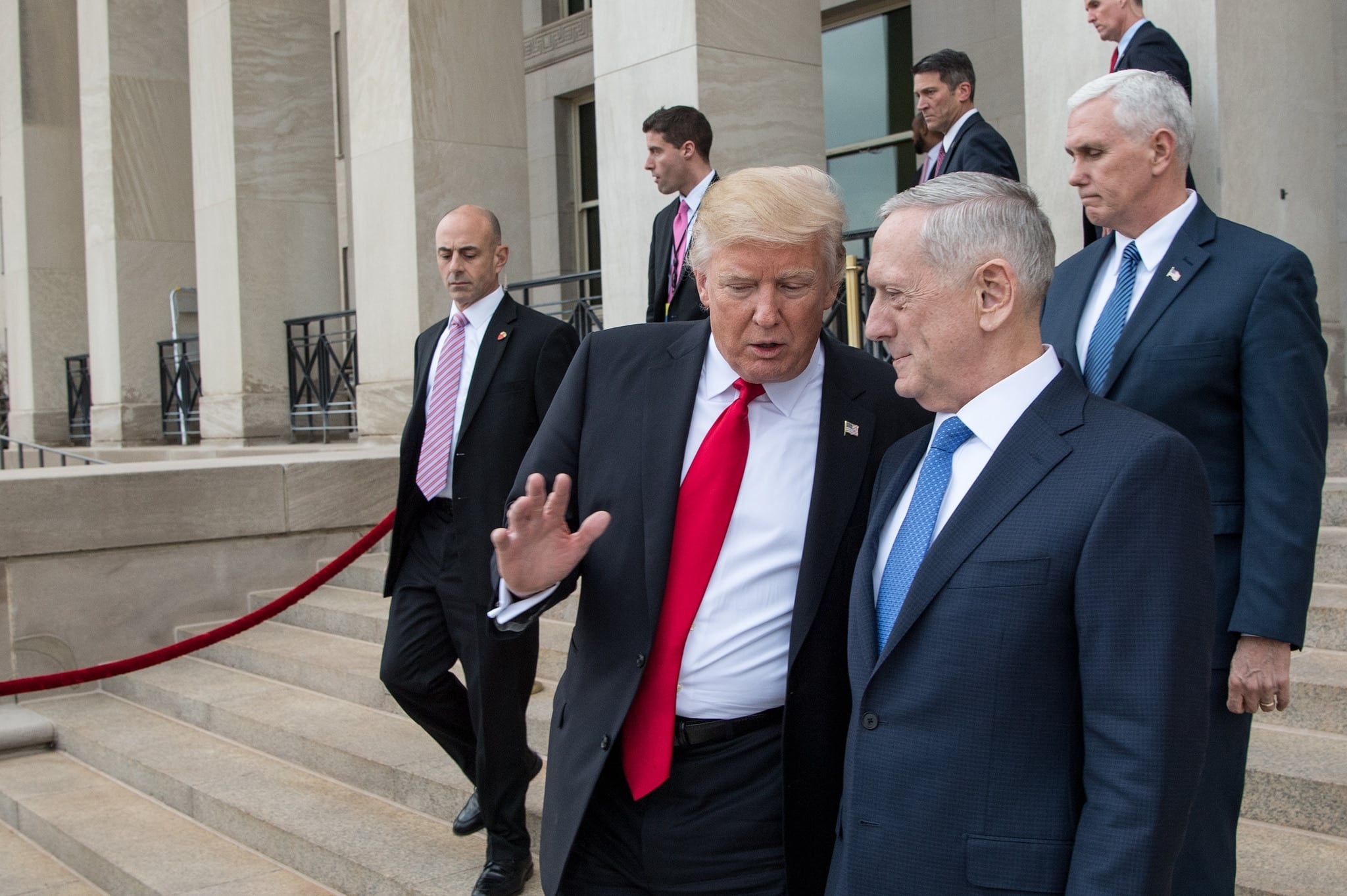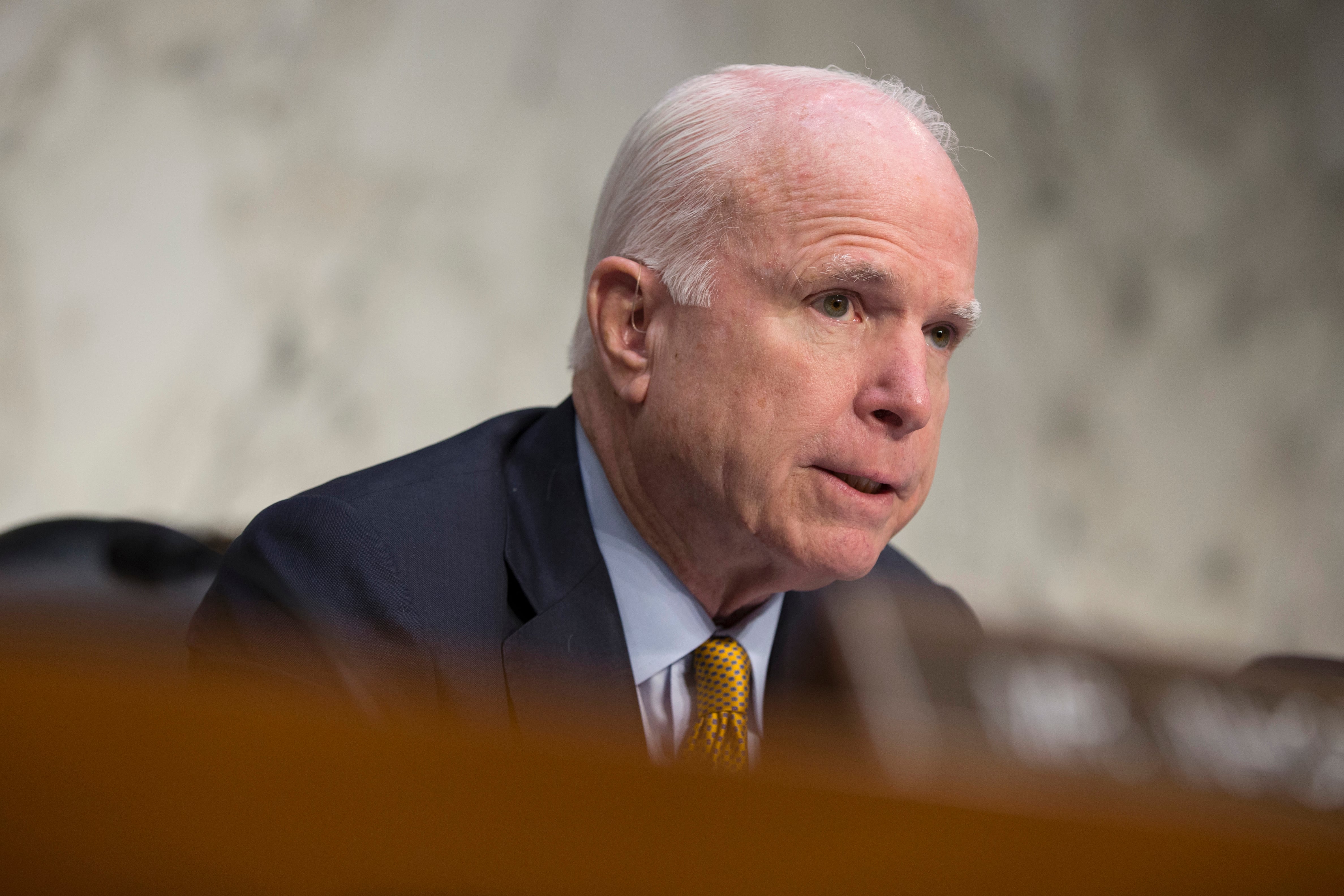WASHINGTON — Nine months into the Trump administration, the Pentagon remains understaffed, with a particularly vital role left unfulfilled in the undersecretary of defense for policy — a vacancy that experts worry is impacting the ability of Secretary of Defense Jim Mattis to execute his agenda.
Alongside the Army secretary, the USD-P job is arguably the most high-profile spot empty at the Pentagon. It’s a key job that serves as both facilitator of the secretary’s will inside the department and his representative outside the building. A trio of former officials to hold that job describe it as a mix between consigliere, strategist and diplomat.
Michèle Flournoy, who served as USD-P from 2009 to 2012, describes the job as “the secretary’s deputy in the NSC process and in all international engagements as well as his right hand in developing the department’s strategy and reviewing the military’s contingency plans and operations.”
“Trying to do the SecDef job without a USD-P is like having one hand tied behind your back,” Flournoy, now the head of the Center for a New American Security think tank, told Defense News. “By contrast, having a strong, empowered USD-P in place is a huge force multiplier for the secretary, enabling him to delegate a significant amount of work that he would otherwise have to do himself.”
Eric Edelman, who had the USD-P job for the last four years of the Bush administration, called the breadth of issues covered by the job “staggering.”
Those responsibilities include formulating policy for homeland defense, nonproliferation and arms control, and regional policies for areas covered by the combatant commands; reviewing war plans; maintaining the Pentagon’s technological edge; and handling bilateral relationships with allies.
RELATED

“It’s an extremely important position,” said Edelman, who does work with a number of institutions, including the Center for Strategic and Budgetary Assessments think tank. “It requires someone with a pretty broad background and a certain amount of experience.”
Christime Wormuth, who served as USD-P from 2014 to 2016, said a key part of the job is being the person who can take a look at multiple portfolios and advise the secretary of defense on the hard choices and tradeoffs that are required.
“There were times we were trying to think where to allocate scarce operational assets, and my Middle East people felt they needed them as did my Asia people, and as undersecretary I had to make recommendations about which theater was going to get those assets,” said Wormuth, now with the Atlantic Council.

“You can’t do that by turning to the DASD level. You need someone at the senior level who can pull that all together,” she said, noting that Mattis “is one man, as able as he is, and he can’t do it alone.”
There is no formal nominee for USD-P, although the widespread expectation remains that John Rood, a former State Department and DoD official who now serves as vice president of international sales for Lockheed Martin, will be named at some point.
Edelman worked with Rood during the Bush administration.
“I’m a big fan,” he said. “I think he’ll do very well at both parts of this. My expectation is he’ll be popular with the folks he works with and will be very good of both elements of the job.”
David Trachtenberg, who was announced as the nominee to be principal deputy undersecretary for policy, continues to sit in the Senate. Although cleared by the Senate Armed Services Committee in July, Trachtenberg has yet to receive a confirmation vote in the broader Senate.
On Tuesday, Sen. John McCain, the Arizona Republican who chairs the Senate Armed Services Committee, told Defense News he is blocking nominees, pending briefings on the Pentagon’s Afghanistan and Iraq strategies. Staffers declined to comment if Trachtenberg was among those being held by McCain.
RELATED

That leaves Robert Karem, who was confirmed as assistant secretary of defense for international security affairs in May, to serve as the acting USD-P – a job that is technically two levels above the one he was confirmed for.
By all accounts, Karem is doing a fine job in the role, but having spots above him empty creates a waterfall impact, noted Edelman: “Everybody is operating at higher level than they intended to be operating and aren’t able to get on top of their actual job.”
That is particularly true with the international relationship building the USD-P is required to do, Edelman said.
“If you have an acting, you don’t have subordinates to do all the staff work to make this happen. And with an acting, the kind of persistent, constant contact with allies that is required is not habitually happening,” he warned. “That can, down the road, create all sorts of potential negative consequences.”
Karem “doesn’t have a Senate-confirmed assistant for his original job. That’s an important job for sending out to counter-ISIL groups, of meetings of counterparts, and he can’t do that because he’s stuck needed at home as USDP,” Wormuth said, using an alternative acronym for the Islamic State group. “It’s a big problem. And that stuff matters.”
Having an acting in the USD-P role can create other challenges, as it comes with an inherent power imbalance in favor of military officials during discussions. Wormuth noted that civilian-military relationships are “a very unbalanced table in that regard right now, and I think the absence of USD-P probably exacerbates that.”
It can also “hurt you when it comes to the Hill, because they want the real undersecretary to come to the hearings and things like that,” she added.
Speaking to the Senate Armed Services Committee on Oct. 3, Mattis acknowledged that the lack of key people on his team is having an impact, with one example being a less-than-ideal pace of communications to Congress.
More broadly, “as my senate confirmed positions get filled, we will have greater capacity to deal with multiple world-wide security challenges,” Mattis said.
Aaron Mehta was deputy editor and senior Pentagon correspondent for Defense News, covering policy, strategy and acquisition at the highest levels of the Defense Department and its international partners.








